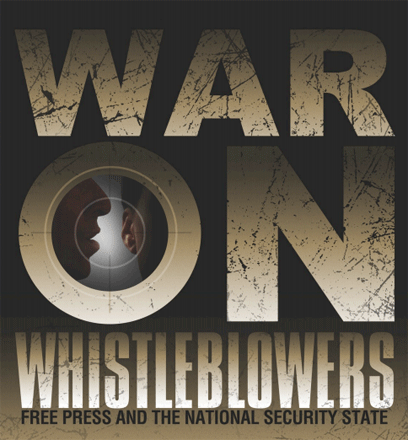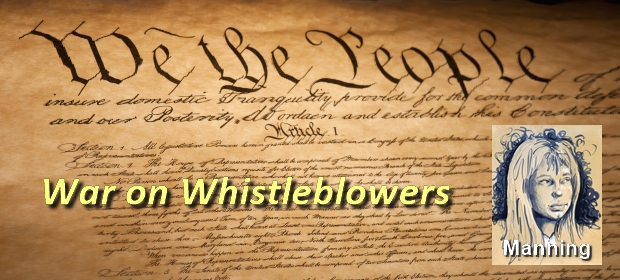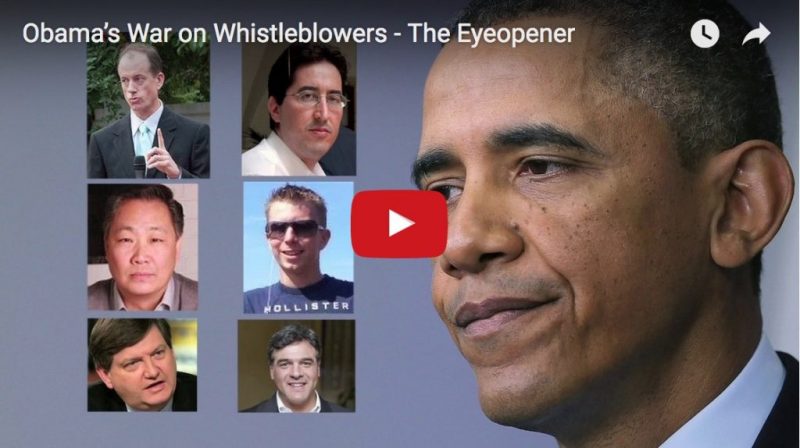
If the 20th Century was the age of the victory of democracy and freedom over tyranny, the 21st century is showing up to be the era where our rights are slowly being taken away. It appears we are on the verge of another ‘war’ of sorts.
Julian Assange is in a British prison fighting an expedition request from the United States relating to charges of espionage for purportedly encouraging and assisting Chelsea Manning provide Wikileaks classified information about US war crimes committed in Iraq.
Chelsea Manning is also in prison for refusing to provide a grand jury information on Assange’s role in acquiring this classified information.
On 10th May San Francisco police raided the home of a freelance journalist Bryan Carmody.
Police used a sledgehammer to smash the door open, handcuffed Carmody for over six hours, and demanded to know the who leaked a police report into the sudden death of the city’s elected public defender Jeff Adachi to him.
After a number of hours, police removed computers, mobile phones, cameras, and handwritten notes from Carmody’s home. This evoked massive public outrage.
On 3th June Australian Federal Police (AFP) raided the home of award winning political journalist from the Daily Telegraph, Annika Smethurst over an article she had written more than a year ago.
Seven AFP officers entered her home as she was leaving for work and made a complete search of the house. Smethurst revealed last year that the Department of Defence and Department of Home Affairs were planning new powers for the Australian Signals Directorate (ASD) to allow the monitoring of Australian citizens without their knowledge.
Her article included images of secret letters between the Home Affairs Secretary Mike Pezzullo and Defence Secretary Greg Moriatty, who are incidentally career public servants and not elected politicians.
The warrant issued by a local magistrate gave the police authority to search the home, computers, and mobile phones of the journalist to seek out the source of the documents she published in her article.
Two days later on the 5th June, three AFP offices and three police technicians marched into the Sydney headquarters of the publicly funded national broadcaster ABC with a search warrant naming two journalists and a news director seeking access to their emails to find the source of leaked classified material that was used to write “The Afghan Files”, an expose of unlawful killings and misconduct by Australian special forces in Afghanistan.
What is strange about the two Australian raids is the timing. The Smethurst raid occurred more than a year after her article was published and in the case of the ABC, more than two years after “The Afghan Files” was published.
The three raids taken by authorities in the United States and Australia occurred after the Assange indictments were made public.
The common thread through the Assange case and the recent raids is that all action taken by authorities is concerned with capturing those who leaked information to journalists, rather than prosecuting journalists who have some mechanisms of protection behind them.
That’s why the US Government is painting Assange as a hacker and not a journalist and the fact that Carmody was a freelance journalist not mentioned in the warrant affidavit.
In the Australian raids the targets were not the journalists themselves.
The raids were fishing expeditions to seek the source of the leaks to the journalists.
Authorities are searching old legislation for extra powers.
The Assange indictment is relying on an old World War One piece of anti-espionage legislation.
The AFP in the ABC raid is using the Commonwealth Crimes Act 1914, where under Section 70 (1) it is a crime for a ‘Commonwealth officer’ to publish or communicate to anybody else, any fact or document which they know or have in their possession, by virtue of being a Commonwealth officer.
he warrant for the Smethurst raid was concerned with ‘unauthorized disclosure of national security information that undermines Australia’s national security’, old standing legislation that hasn’t been used before in this type of situation.
In the Assange case the deadline for a full US request to the British Court for Assange’s extradition over the current 18 espionage indictments in his alleged role in acquiring classified information is 14th June.
With Chelsea Manning refusing to testify before the grand jury, the FBI have been reintegrating an Icelandic citizen Sigurdur Thordarson who was involved in Wikileaks back in 2010.
It is reported by Wikileaks that Thordarson was taken to the US with the objective of preparing a completely new indictment against Assange, in case Manning doesn’t talk.
The legality of the Carmody raid is being challenged in court, where journalists in California are protected under the California Shield Law from such raids.
As mentioned, the paperwork in the affidavit seeking the search warrant didn’t mention Carmody was a journalist, where police tried to paint Carmody as a co-conspirator in the purported theft of a government document, rather than a journalist who has protection of the First Amendment of the US Constitution, in a similar manner to the Assange indictment.
In the Australian raids, authorities are specifically after the sources of the leaks as journalists are protected by the National Security Legislation Amendment (Espionage and Foreign Interference) Act 2018.
Common to all the cases above is that it is not elected administrations which are pursuing those who leak government documents.
It appears to be faceless, unelected, and primarily unaccountable bureaucrats who are running police and security agencies.
These faceless and almost unaccountable people have become ‘over-zealous’ in protecting government secrets.
The Trump Administration has been mostly silent on the Assange case, leaving the matter to the prosecutors. Chelsea Manning is in jail again over the same matter she was imprisoned for, even though Obama commuted her sentence before leaving office.
The Australian Prime Minister Scott Morrison interviewed in London after the AFP raids on the ABC claimed the AFP is acting on their own and have not received any directions from his government on the matter. Morrisons comments were supportive of the AFP, showing no concern for their heavy handedness in the raids.

Elected politicians have allowed and supported increases in police and security agency power, ever since 911. Democraticly elected governments have been giving more powers to police and security agencies for surveillance and allowed these unaccountable agencies to build mammoth apparatus to spy on their own citizens as the author reported previously.
The actions of these largely unaccountable bureaucracies have been far from infallible. The question here is with past mistakes, can police and security agencies be trusted with the powers they are using to act in society’s best interests?
The AFP has made a number of operational decisions that have put Australian citizens in harm’s way.
A high ranking Malaysian Government official told the author that the Malaysian Police had asked the AFP for guidance about drug traffickers Kevin Barlow and Geoffrey Chambers before arresting them at Penang airport in 1983.
The official said the Malaysian police were told by the AFP to proceed with the arrest and deal with them under Malaysian law which meant a mandatory death penalty.
It was the AFP who tipped off the Indonesian authorities about the activities of the Bali Nine rather than arrest them on Australian soil. This led to the execution of two Australian citizens, Myuran Sukumaran and Andrew Chan.
More recently, the AFP slipped up in the Hakeen al-Araibi case, by failing to lift an Interpol Red Notice, which led to al-Araibi’s unnecessary incarceration in a Thai jail for two months.
An organization that has a track record of having little regard to the welfare and safety of Australian citizens and has the power of being able to spy on journalists without their knowledge is dangerous.
The power to spy on journalists was only revealed through a slip up by the AFP in 2015 where it became public knowledge that AFP officers could seek a Journalist Information Warrant in secret under the Telecommunications (Interception and Access) Amendment (Data Retention) Act 2015.
It appears that the strategy to catch whistle-blowers has now been expanded to using intimidation on journalists to reveal their sources.
The APF raid on the ABC can be seen as being part of a power play.
The treatment of individuals like Bryan Carmody by using sledgehammers to break open his door and handcuffs, and going through Annika Smethurst’s underwear seem to be nothing more than straight intimidation.
The powerful police and security agencies seem to be directly challenging the convention in democratic countries that the media be given ample room to investigate and publish information in what is arguably in the public interest.
With the Assange case going on, the raid on a journalist in San Francisco, and raids in Australia being largely unchallenged, the potential for good investigative journalism that uncovered scandals like Watergate may not be allowed to happen in the future.
Assange has been smeared to the point where the body of uninformed public opinion believes he deserves what is happening to him.
In the Carmody case, authorities tried to narrow the definition of a journalist to exclude freelancing.
This is what authorities are also doing in the Assange case, trying to associate him with stealing information, rather than reporting and publishing it.
Some of the Australian public believe that the National Broadcaster is too far to the left and as a consequence needs to be put into check.
Authorities have been using public opinion as a cover to move on public rights and freedoms.
The corporate media are partly to blame for this by their complacency on the issue of eroding public rights and freedoms.
This is forcing good investigative journalism out of the corporations to small independent media agencies with meniscal resources.
This complacency of the corporate media has allowed police and security agencies to increase their powers of surveillance, search, arrest, and punishment.
The security agencies have sought new laws and flexed old laws to extend their powers. Uncomfortable truths about government blunders, embarrassments, and outright illegal acts, are now being hidden from the public right to know through the guise of the term ‘national security’.
The increasing complexity of government, especially the exponential growth of security agencies under the war on terror with rapid telecommunications and computer technology development has enabled the development of these agencies to an Orwellian scale.
This is the Assange Effect.
The authorities are getting away with their harassment of Assange, so any other potential whistle-blower or journalist will think twice about exposing what they believe the public has a right to know. Fear is being created as an implicit form of censorship.
The case of Australian Tax Office whistle-blower Richard Boyle showed other potential whistle-blowers, if you deluge government information be prepared to be taken down in anyway necessary.
The branded and packaged ‘war on terror’ enabled governments to build up a massive surveillance structure over its own citizens.
Now the ‘war on whistle-blowers’ is commencing where the ‘dark part’ of government that is always there no matter what political party governs is attempting to take away the public’s right to know.

Our concern is do we want police and security organizations in our democratic societies to have this much influence?
The only weapon the public has left against over-zealous police and security agencies is public outrage. This is in play now in San Francisco in the Carmody case now and may be a lesson in the other cases mentioned and future cases that will no doubt arise very soon.
By Professor Murray Hunter
This article was originally published in the Asia Sentinel
The 21st Century
